Rioting rages across France for fourth night ahead of funeral for teenager shot dead by police
Despite 45,000 officers on country’s streets, cars and buildings were set ablaze and stores were looted, while 994 arrests made by early Saturday
Rioting raged across France for a fourth night as family and friends prepare to bury the 17-year-old whose killing by police sparked the unrest.
Despite a massive deployment of 45,000 police officers to the country’s streets, cars and buildings were set ablaze and stores were looted, while the interior ministry announced 994 arrests around the country by early Saturday.
Nahel Merzouk, 17, will be laid to rest following an Islamic ceremony close to his home in the north-western Paris suburb of Nanterre, where he was shot in the chest as he sat at the wheel of a stationary Mercedes last Tuesday.
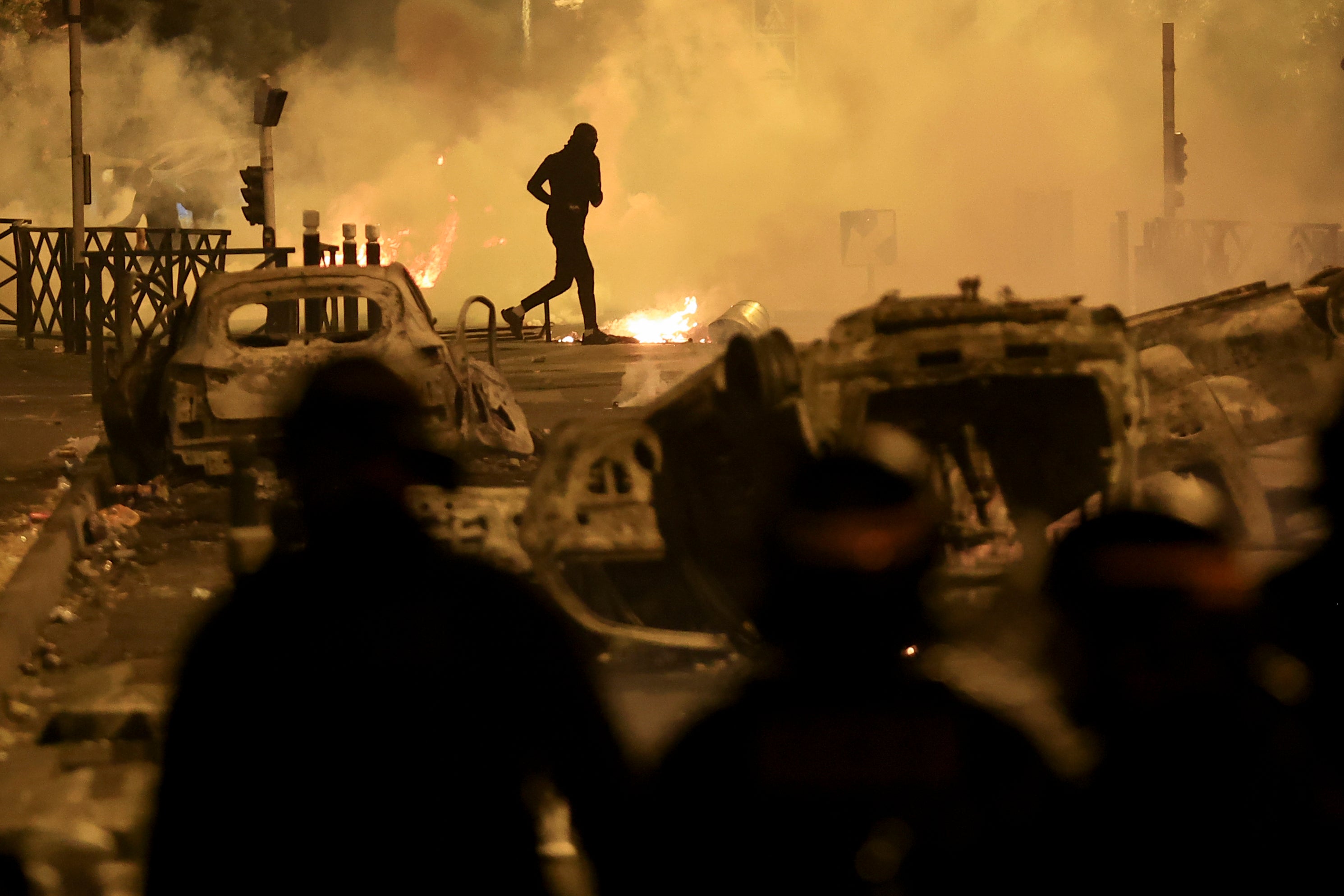
The officer responsible - identified as Florian M., 38 - remains on remand having been charged with murder.
The government suggested the violence triggered by the teenager’s killing was beginning to lessen, following tougher security measures, including 5,000 more officers than the previous night.
But damages remained widespread, from Paris to Marseille to Lyon to French territories overseas, where a 54-year-old died after being hit by a stray bullet in French Guiana.
France’s national soccer team — including international star Kylian Mbappe, an idol to many young people in the disadvantaged neighborhoods, where the anger is rooted — pleaded for an end to the violence.
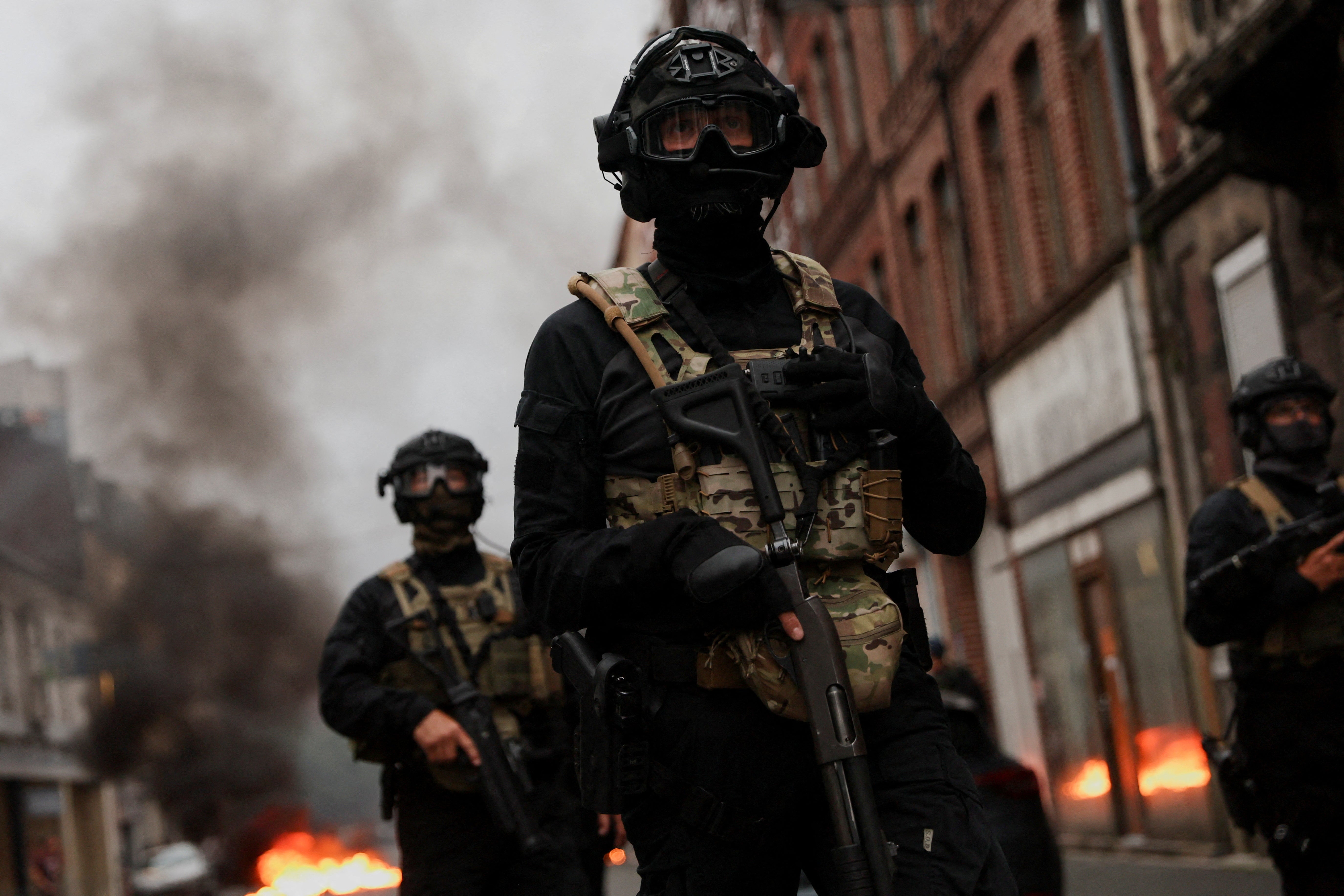
“Many of us are from working-class neighborhoods, we too share this feeling of pain and sadness” over the killing of 17-year-old Nahel, the players said in a statement. “Violence resolves nothing. … There are other peaceful and constructive ways to express yourself.”
They said it's time for “mourning, dialogue and reconstruction” instead.
The fatal shooting of the teenager stirred up long-simmering tensions between police and young people in housing projects who struggle with poverty, unemployment and racial discrimination. Anger erupted in Nanterre after his death there on Tuesday and quickly spread nationwide.
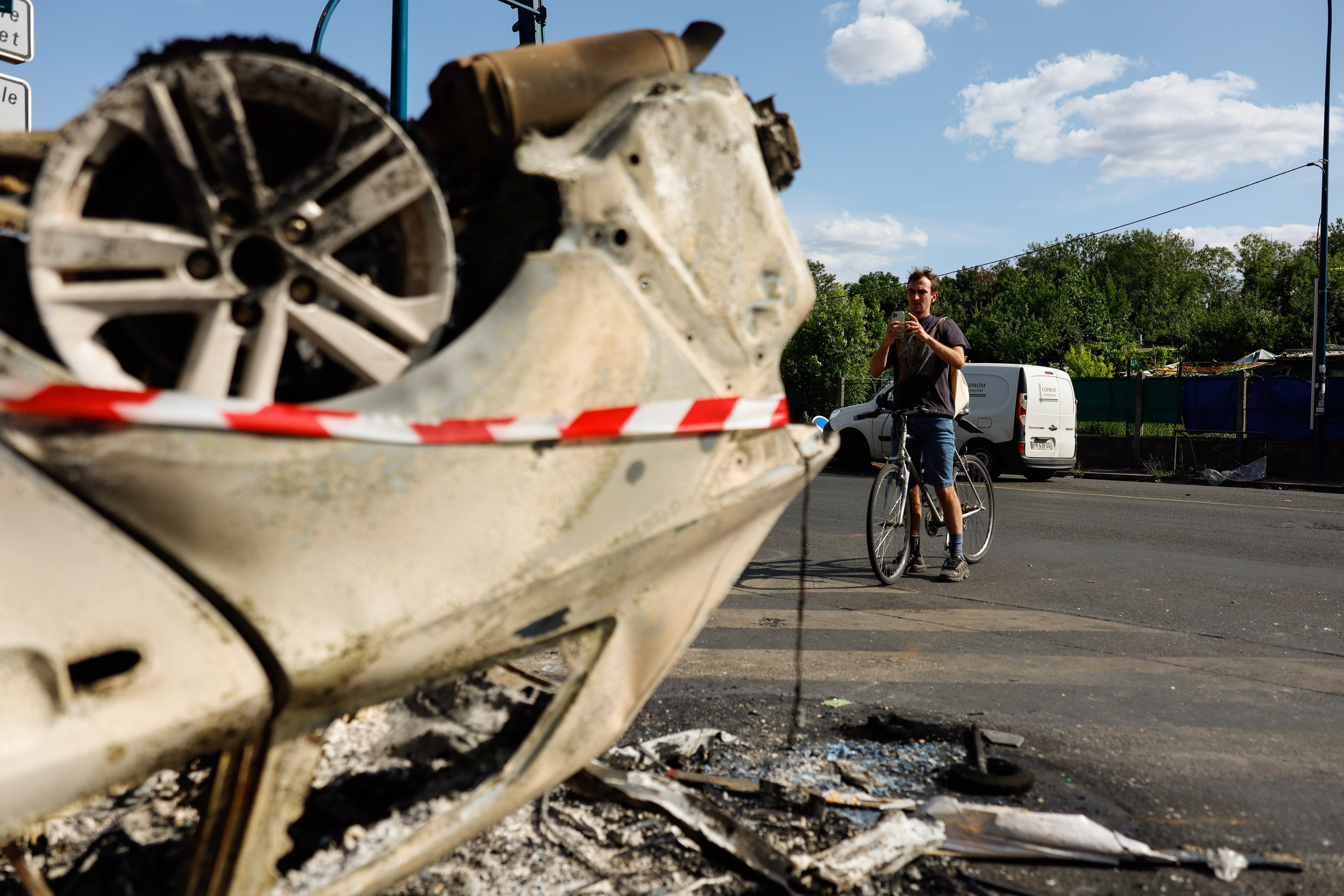
The subsequent rioting is the worst France has seen in years and puts new pressure on President Emmanuel Macron, who appealed to parents to keep children off the streets and blamed social media for fueling violence.
Early on Saturday, firefighters in Nanterre extinguished blazes set by protesters that left scorched remains of cars strewn across the streets. In the neighboring suburb Colombes, protesters overturned garbage bins and used them for makeshift barricades.
Looters during the evening broke into a gun shop and made off with weapons in the Mediterranean port city of Marseille, police said. Officers in Marseille arrested nearly 90 people as groups of protesters lit cars on fire and broke store windows to take what was inside.
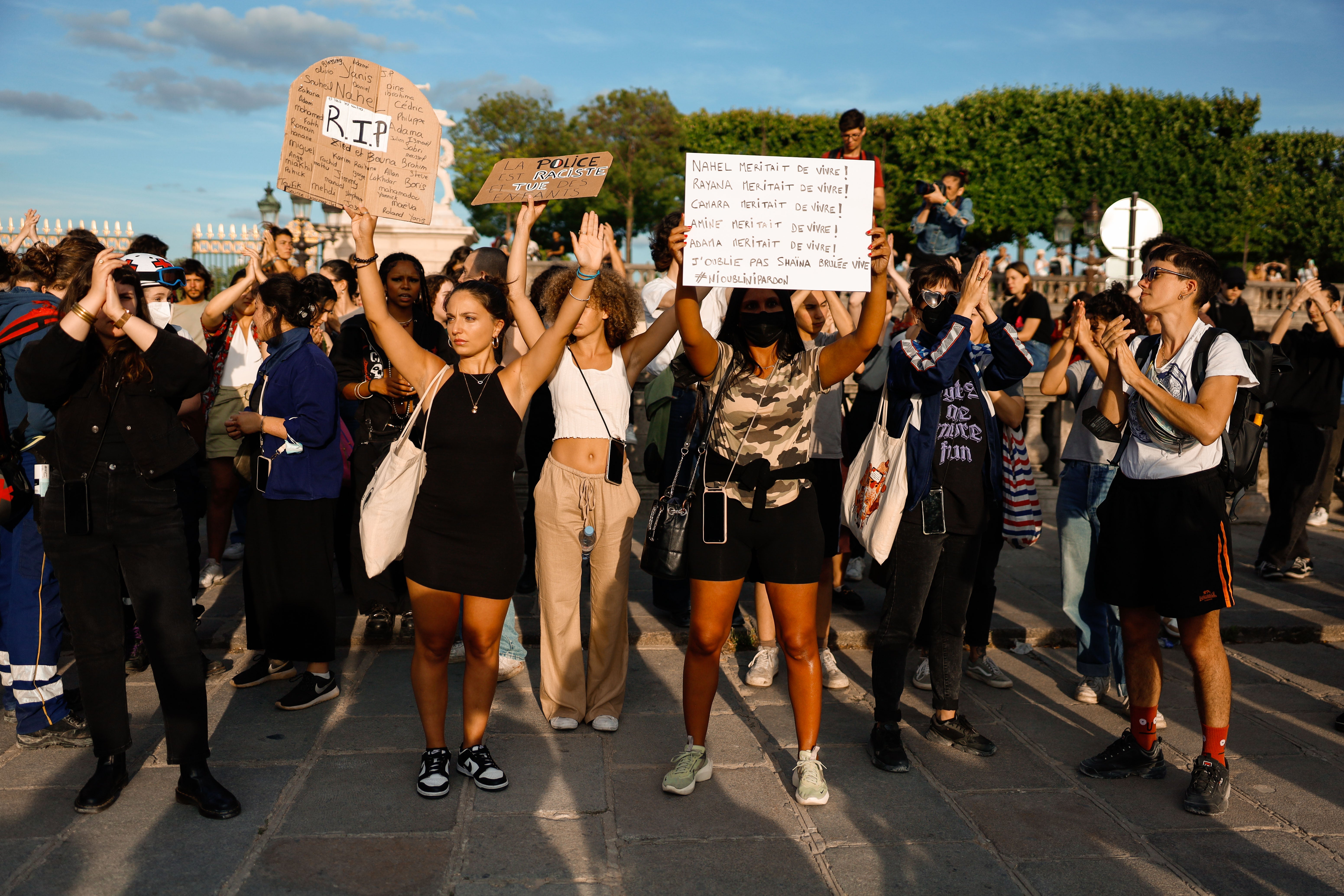
Buildings and businesses were also vandalized in the eastern city of Lyon, where a third of the roughly 30 arrests made were for theft, police said. Authorities reported fires in the streets after an unauthorized protest drew more than 1,000 people earlier Friday evening.
The Interior Ministry said 994 arrests were made during the night, with more than 2,500 fires. The night before, 917 people were arrested nationwide, 500 buildings targeted, 2,000 vehicles burned and dozens of stores ransacked.
While the number of overnight arrests was the highest yet, there were fewer fires, cars burned and police stations attacked around France than the previous night, according to the Interior Ministry. Interior Minister Gerald Darmanin claimed the violence was of “much less intensity.”
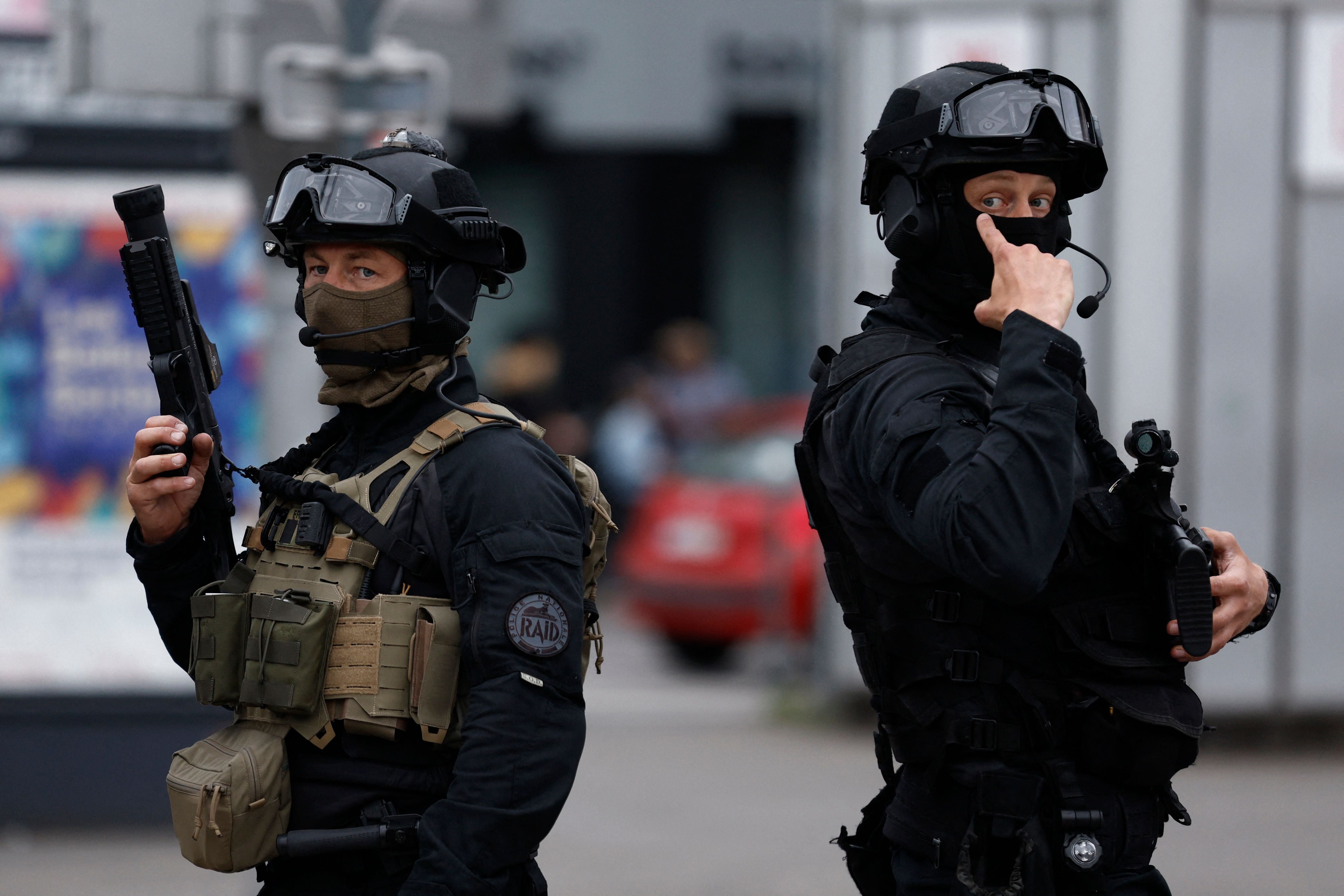
Hundreds of police and firefighters have been injured, including 79 overnight, but authorities have not released injury tallies for protesters.
Nanterre Mayor Patrick Jarry said France needs to “push for changes” in disadvantaged neighborhoods.
Despite repeated government appeals for calm and stiffer policing, Friday saw brazen daylight violence, too. An Apple store was looted in the eastern city of Strasbourg, where police fired tear gas, and the windows of a fast-food outlet were smashed in a Paris-area shopping mall, where officers repelled people trying to break into a shuttered store, authorities said.
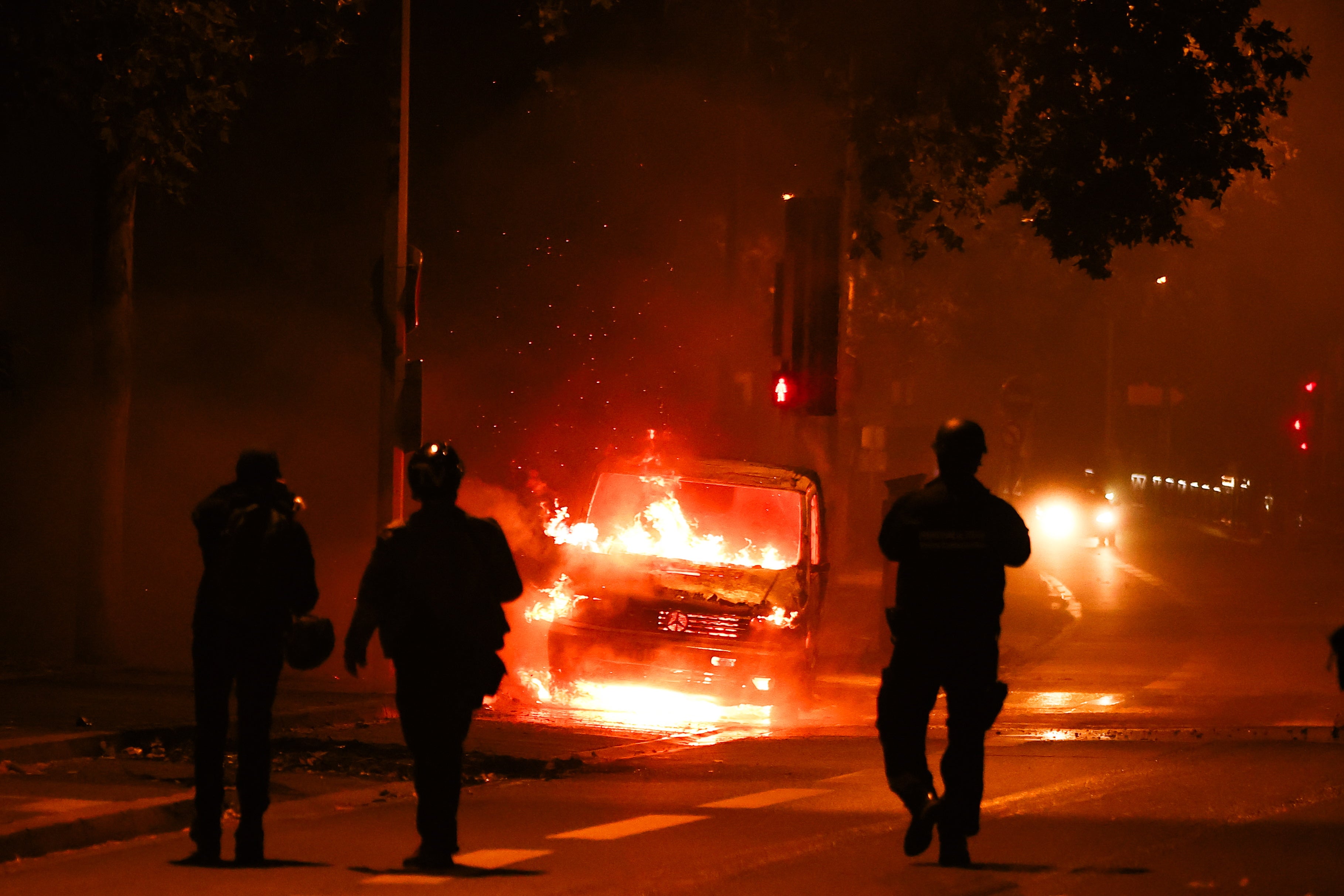
In the face of the escalating crisis that hundreds of arrests and massive police deployments have failed to quell, Macron held off on declaring a state of emergency, an option that was used in similar circumstances in 2005.
Instead, his government ratcheted up its law enforcement response, with 45,000 police deployed overnight. Some were called back from vacation.
Darmanin ordered a nationwide nighttime shutdown Friday of all public buses and trams, which have been among rioters’ targets. He also said he warned social networks not to allow themselves to be used as channels for calls to violence.
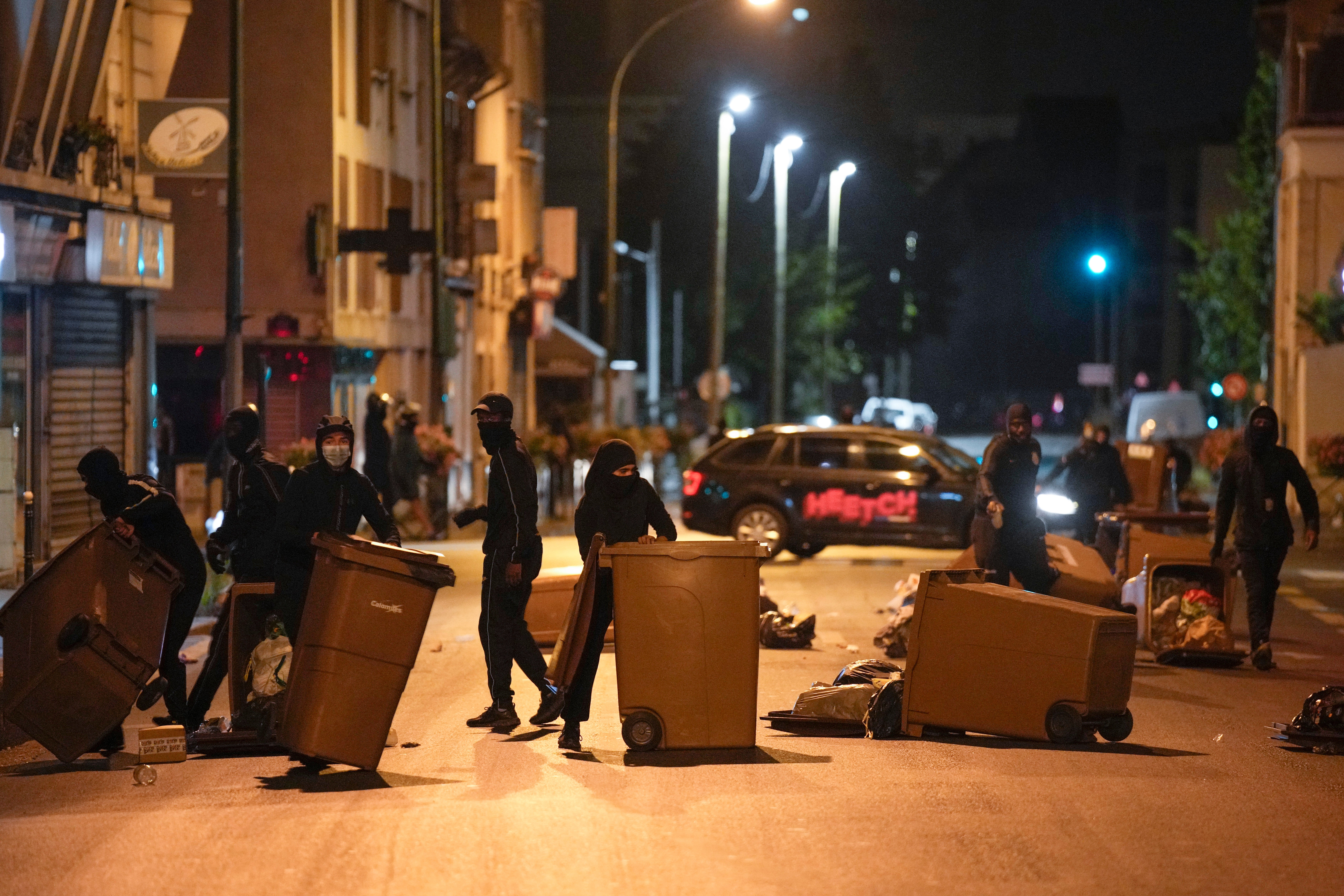
“They were very cooperative,” Darmanin said, adding that French authorities were providing the platforms with information in hopes of cooperation identifying people inciting violence.
“We will pursue every person who uses these social networks to commit violent acts,” he said.
Macron, too, zeroed in on social media platforms that have relayed dramatic images of vandalism and cars and buildings being torched. Singling out Snapchat and TikTok, he said they were being used to organize unrest and served as conduits for copycat violence.
The violence comes just over a year before Paris and other French cities are due to host 10,500 Olympians and millions of visitors for the summer Olympic Games. Organizers said they are closely monitoring the situation as preparations for the Olympics continue.
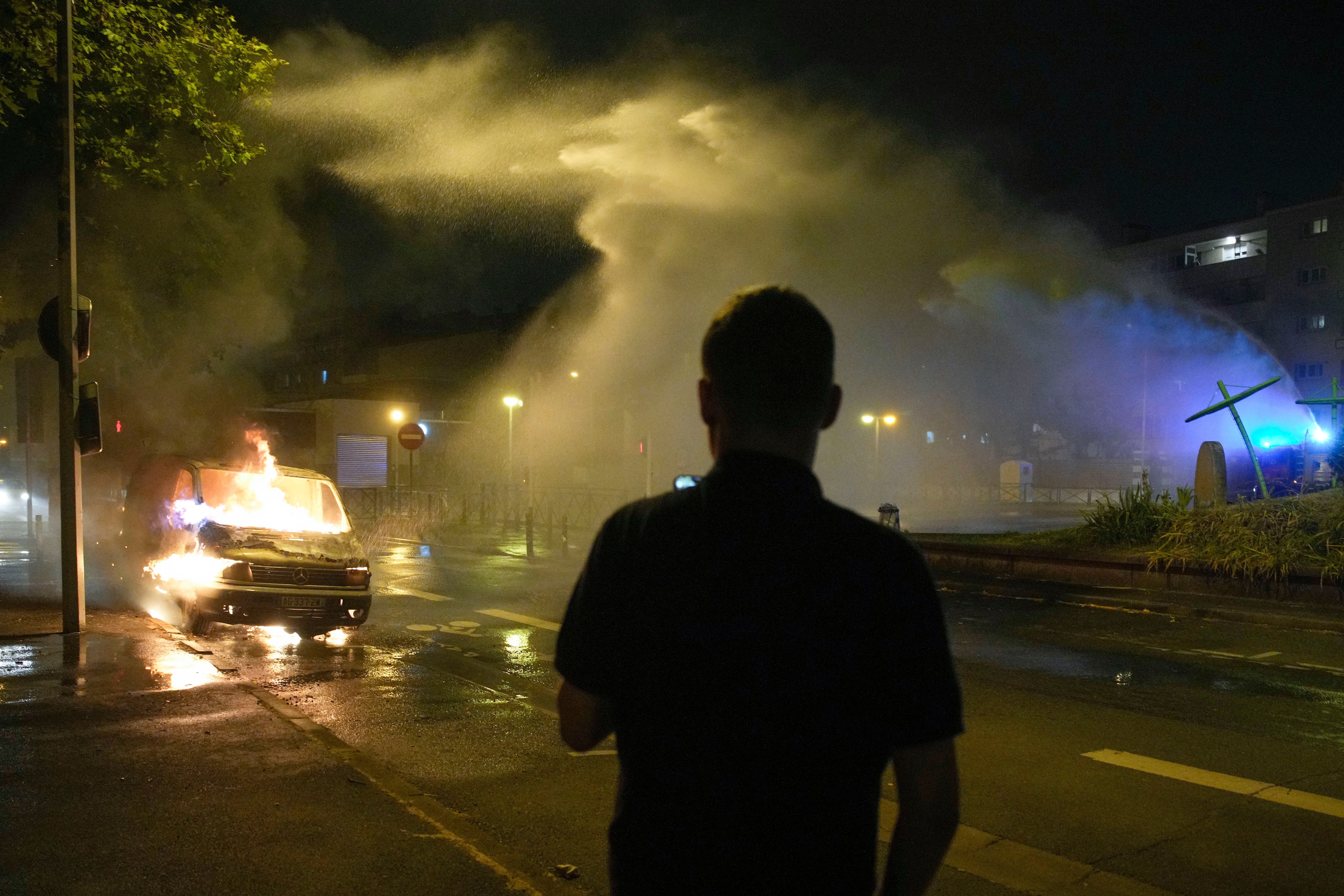
The police officer accused of killing Nahel was handed a preliminary charge of voluntary homicide. Preliminary charges mean investigating magistrates strongly suspect wrongdoing but need to investigate more before sending a case to trial. Nanterre prosecutor Pascal Prache said his initial investigation led him to conclude that the officer’s use of his weapon wasn’t legally justified.
Nahel’s mother, identified as Mounia M., told France 5 television that she was angry at the officer but not at the police in general. “He saw a little Arab-looking kid, he wanted to take his life,” she said.
“A police officer cannot take his gun and fire at our children, take our children’s lives,” she said. The family has roots in Algeria.

In the wake of Nahel’s killing, French anti-racism activists have renewed complaints about police behavior.
Thirteen people who didn’t comply with traffic stops were fatally shot by French police last year. This year, another three people, including Nahel, died under similar circumstances. The deaths have prompted demands for more accountability in France, which also saw racial justice protests after George Floyd’s killing by police in Minnesota.
This week’s protests echoed the three weeks of rioting in 2005 that followed the deaths of 15-year-old Bouna Traoré and 17-year-old Zyed Benna, who were electrocuted while hiding from police in a power substation in Clichy-sous-Bois.



Bookmark popover
Removed from bookmarks